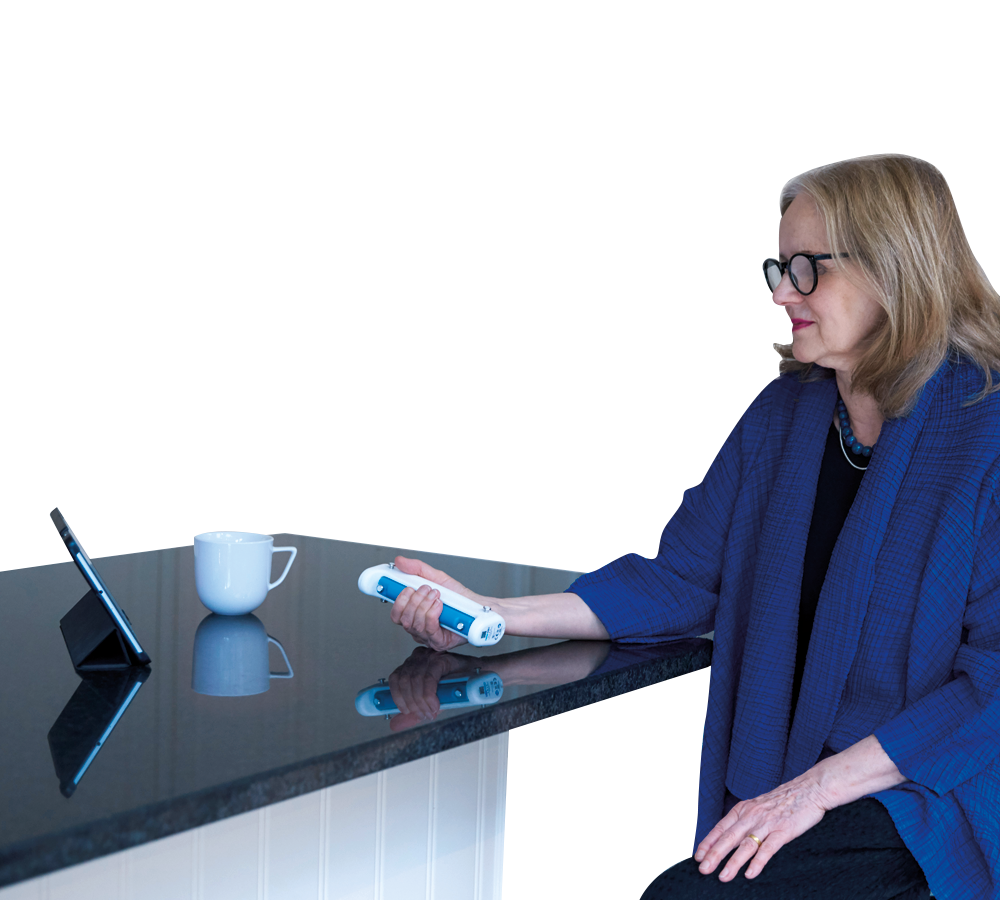Imperial study shows GripAble can help stroke patients do more upper limb training
A new study carried out by a team of researchers at Imperial College indicates that GripAble can significantly increase the amount of upper limb training exercises stroke survivors do without supervision.
In a clinical trial of 30 patients, researchers from Imperial College London, the University of Southampton and Imperial College Healthcare NHS Trust found that the device enabled on average 104 upper limb repetitions per day, whereas conventional therapy achieved 15 repetitions per day. The study is published in Neurorehabilitation & Neural Repair.
Over five million people in the UK live with hand and arm weakness, with stroke damage accounting for one million people of those people. The only intervention shown to improve arm function is repetitive, task-specific exercise but this is limited by the cost and availability of occupational therapists and physiotherapists.
Michelle Broderick, lead author of the study and Clinical Research Therapist in Stroke at Imperial College Healthcare NHS Trust, said:
“Stroke is a major cause of arm weakness in the UK. It can significantly impact survivors’ lives making it hard for them to do routine daily tasks, limiting their independence. Previous studies have shown that repetitive exercise is vital for improving arm weakness, but this can be difficult due to resource constraints within healthcare settings, as well as the range of challenges faced by stroke survivors during their recovery, which can limit their ability to initiate or engage in independent exercise or rehabilitation activities.
“This study is the first to show that a rehabilitation device – GripAble – can achieve significant increases in the amount of exercise patients do compared to supervised therapy.
“Our findings suggest that a significant proportion of stroke survivors may potentially benefit from GripAble alongside conventional therapy. This could improve patient outcomes as well as easing pressure for the NHS in terms of infrastructure and resources.
Dr Paul Bentley co-author of the study and Clinical Director of the Imperial College Network of Excellence in Rehabilitation Technology at Imperial College London, added:
“The findings from this clinical trial provide evidence that GripAble can be adopted to help further support stroke patients with severe arm weakness with their rehabilitation unsupervised.
“This could have big implications for the NHS, given that recovery from stroke is strongly influenced by exercise intensity. Our technology can be used by patients to continue with their physiotherapy outside of standard treatment and help with their recovery. The long-term aim of GripAble is that patients can use it outside of a clinical setting such as in their homes and communities and we are now working to further assess the device’s impact on clinical outcomes.”
Visit Imperial College online for full details of the clinical trial methodology and outcomes.
Find out more

